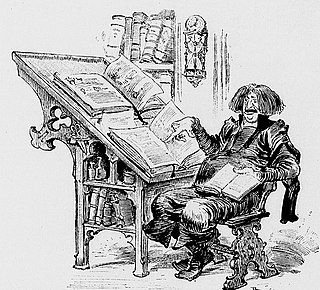
In ethics, casuistry is a process of reasoning that seeks to resolve moral problems by extracting or extending theoretical rules from a particular case, and reapplying those rules to new instances. This method occurs in applied ethics and jurisprudence. The term is also commonly used as a pejorative to criticize the use of clever but unsound reasoning, especially in relation to moral questions. It is the "[s]tudy of cases of conscience and a method of solving conflicts of obligations by applying general principles of ethics, religion, and moral theology to particular and concrete cases of human conduct. This frequently demands an extensive knowledge of natural law and equity, civil law, ecclesiastical precepts, and an exceptional skill in interpreting these various norms of conduct." It remains a common tool for applied ethics.

The Puritans were English Protestants in the 16th and 17th centuries who sought to purify the Church of England of Roman Catholic practices, maintaining that the Church of England had not been fully reformed and should become more Protestant. Puritanism played a significant role in English history, especially during the Protectorate.
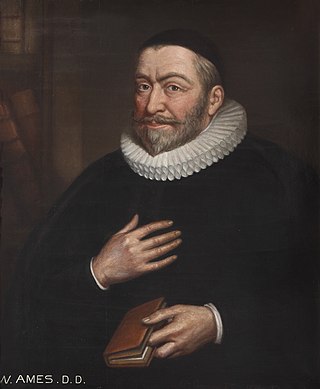
William Ames was an English Puritan minister, philosopher, and controversialist. He spent much time in the Netherlands, and is noted for his involvement in the controversy between the Calvinists and the Arminians.

Richard Baxter was an English Nonconformist church leader and theologian from Rowton, Shropshire, who has been described as "the chief of English Protestant Schoolmen". He made his reputation in the late 1630s by his ministry at Kidderminster in Worcestershire, when he also began a long and prolific career as theological writer.

The Imitation of Christ, by Thomas à Kempis, is a Christian devotional book first composed in Medieval Latin as De Imitatione Christi. The devotional text is divided into four books of detailed spiritual instructions: (i) "Helpful Counsels of the Spiritual Life", (ii) "Directives for the Interior Life", (iii) "On Interior Consolation", and (iv) "On the Blessed Sacrament". The devotional approach of The Imitation of Christ emphasises the interior life and withdrawal from the mundanities of the world, as opposed to the active imitation of Christ practised by other friars. The devotions of the books emphasise devotion to the Eucharist as the key element of spiritual life.
In theology and philosophy, probabilism is an ancient Greek doctrine of Academic skepticism. It holds that in the absence of certainty, plausibility or truth-likeness is the best criterion. The term can also refer to a 17th-century religious thesis about ethics, or a modern physical-philosophical thesis.
The following outline is provided as an overview of and topical guide to Christian theology:
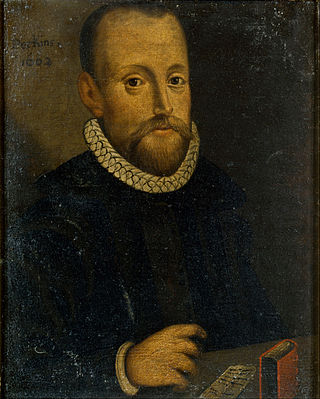
William Perkins (1558–1602) was an influential English cleric and Cambridge theologian, receiving both a B.A. and M.A. from the university in 1581 and 1584 respectively, and also one of the foremost leaders of the Puritan movement in the Church of England during the Elizabethan era. Although not entirely accepting of the Church of England's ecclesiastical practices, Perkins conformed to many of the policies and procedures imposed by the Elizabethan Settlement. He did remain, however, sympathetic to the non-conformist puritans and even faced disciplinary action for his support.
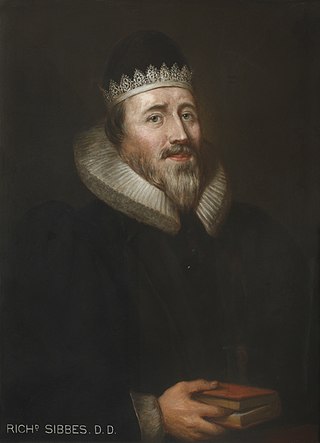
Richard Sibbes (1577–1635) was an Anglican theologian. He is known as a Biblical exegete, and as a representative, with William Perkins and John Preston, of what has been called "main-line" Puritanism because he always remained in the Church of England and worshiped according to the Book of Common Prayer.
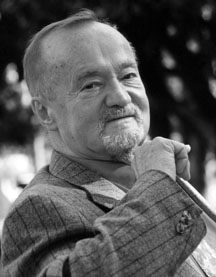
Stephen Edelston Toulmin was a British philosopher, author, and educator. Influenced by Ludwig Wittgenstein, Toulmin devoted his works to the analysis of moral reasoning. Throughout his writings, he sought to develop practical arguments which can be used effectively in evaluating the ethics behind moral issues. His works were later found useful in the field of rhetoric for analyzing rhetorical arguments. The Toulmin model of argumentation, a diagram containing six interrelated components used for analyzing arguments, and published in his 1958 book The Uses of Argument, was considered his most influential work, particularly in the field of rhetoric and communication, and in computer science.

The historical-grammatical method is a modern Christian hermeneutical method that strives to discover the biblical authors' original intended meaning in the text. According to the historical-grammatical method, if based on an analysis of the grammatical style of a passage, it appears that the author intended to convey an account of events that actually happened, then the text should be taken as representing history; passages should only be interpreted symbolically, poetically, or allegorically if to the best of our understanding, that is what the writer intended to convey to the original audience. It is the primary method of interpretation for many conservative Protestant exegetes who reject the historical-critical method to various degrees, in contrast to the overwhelming reliance on historical-critical interpretation in biblical studies at the academic level.
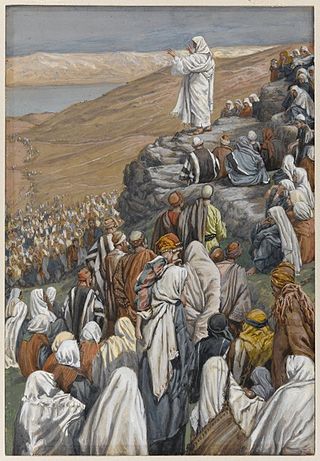
Christian ethics, also known as moral theology, is a multi-faceted ethical system. It is a virtue ethic, which focuses on building moral character, and a deontological ethic which emphasizes duty. It also incorporates natural law ethics, which is built on the belief that it is the very nature of humans – created in the image of God and capable of morality, cooperation, rationality, discernment and so on – that informs how life should be lived, and that awareness of sin does not require special revelation. Other aspects of Christian ethics, represented by movements such as the social Gospel and liberation theology, may be combined into a fourth area sometimes called prophetic ethics.
Catholic moral theology is a major category of doctrine in the Catholic Church, equivalent to a religious ethics. Moral theology encompasses Catholic social teaching, Catholic medical ethics, sexual ethics, and various doctrines on individual moral virtue and moral theory. It can be distinguished as dealing with "how one is to act", in contrast to dogmatic theology which proposes "what one is to believe".

The reign of Elizabeth I of England, from 1558 to 1603, saw the start of the Puritan movement in England, its clash with the authorities of the Church of England, and its temporarily effective suppression as a political movement in the 1590s by judicial means. This of course led to the further alienation of Anglicans and Puritans from one another in the 17th century during the reign of King James (1603–1625) and the reign of King Charles I (1625–1649), that eventually brought about the English Civil War (1642–1651), the brief rule of the Puritan Lord Protector of England Oliver Cromwell (1653–1658), the English Commonwealth (1649–1660), and as a result the political, religious, and civil liberty that is celebrated today in all English speaking countries.

The reign of King James I of England (1603–1625) saw the continued rise of the Puritan movement in England, that began during reign of Queen Elizabeth (1558–1603), and the continued clash with the authorities of the Church of England. This eventually led to the further alienation of Anglicans and Puritans from one another in the 17th century during the reign of King Charles I (1625–1649), that eventually brought about the English Civil War (1642–1651), the brief rule of the Puritan Lord Protector of England Oliver Cromwell (1653–1658), the English Commonwealth (1649–1660), and as a result the political, religious, and civil liberty that is celebrated today in all English speaking countries.

The Hollis Chair of Divinity is an endowed chair at Harvard Divinity School. It was established in 1721 by Thomas Hollis, a wealthy English merchant and benefactor of the university, at a salary of £80 per year. It is the oldest endowed chair in the United States, the first professorship in theology in the country, and in the early 19th century it was considered to be "the most prestigious endowed professorship in America".

Historians have produced and worked with a number of definitions of Puritanism, in an unresolved debate on the nature of the Puritan movement of the 16th and 17th century. There are some historians who are prepared to reject the term for historical use. John Spurr argues that changes in the terms of membership of the Church of England, in 1604–6, 1626, 1662, and also 1689, led to re-definitions of the word "Puritan". Basil Hall, citing Richard Baxter. considers that "Puritan" dropped out of contemporary usage in 1642, with the outbreak of the First English Civil War, being replaced by more accurate religious terminology. Current literature on Puritanism supports two general points: Puritans were identifiable in terms of their general culture, by contemporaries, which changed over time; and they were not identified by theological views alone.

Most scientific and technical innovations prior to the scientific revolution were achieved by societies organized by religious traditions. Ancient pagan, Islamic, and Christian scholars pioneered individual elements of the scientific method. Historically, Christianity has been and still is a patron of sciences. It has been prolific in the foundation of schools, universities and hospitals, and many Christian clergy have been active in the sciences, and have made significant contributions to the development of science.
Anthony Stafford (1587–1645?) was an English Anglican devotional writer. He was in particular concerned for, and attacked over, the use of Marian devotions within the Church of England.
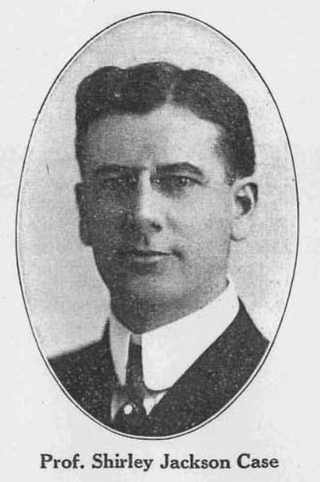
Shirley Jackson Case (1872–1947) was an historian of early Christianity, and a liberal theologian. He served as dean of the Divinity School at the University of Chicago.